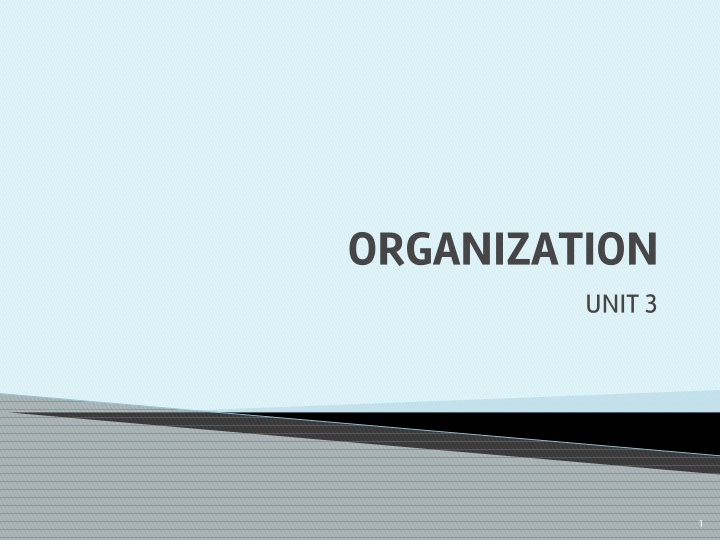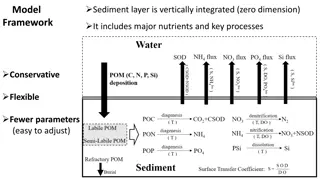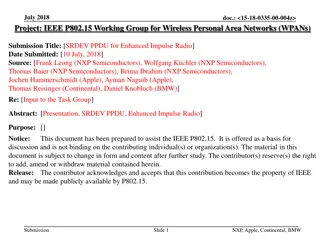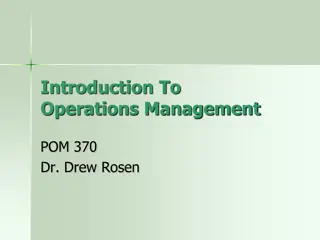
Management Functions: Planning, Organizing, Staffing, Directing, Controlling
Explore the essential functions of management including planning, organizing, staffing, directing, and controlling. Learn about the goals of organizations, the resources they use, and the roles of managers in achieving these goals. Discover the importance of management at all levels of organizations, from small groups to large institutions.
Download Presentation

Please find below an Image/Link to download the presentation.
The content on the website is provided AS IS for your information and personal use only. It may not be sold, licensed, or shared on other websites without obtaining consent from the author. If you encounter any issues during the download, it is possible that the publisher has removed the file from their server.
You are allowed to download the files provided on this website for personal or commercial use, subject to the condition that they are used lawfully. All files are the property of their respective owners.
The content on the website is provided AS IS for your information and personal use only. It may not be sold, licensed, or shared on other websites without obtaining consent from the author.
E N D
Presentation Transcript
ORGANIZATION UNIT 3 1
DEFINE ORGANIZATION? A group of people working together in structured and coordinated way to achieve a set of goals. What can be the set of goals?? 2
What are the basic kind of resources used by all organizations?? Human Financial Physical resources 1) 2) 3) Managers are responsible for combining and coordinating all these various resources to achieve the organizational goals 3
What is Management? According to F.W.Taylor, Management is an art of knowing what is to be done and seeing that it is done in the best possible manner . According to Henry Fayol, Management is to forecast, to plan, to organize, to command to coordinate and control activities of others . 4
Every organization needs management for every level. BE IT AN ORG. AS SMALL AS A FAMILY OR TEMPLE OR BIG ORGANIZATION LIKE COLLEGES/BUSINESS HOUSES 5
Define Manager? Manager is someone whose primary responsibility is to carry out the management process. 6
Functions /Process of Management Planning Organizing Staffing Directing Controlling 7
Functions /Process of Management 1. Planning is decision making process. Planning Planning is the first and basic function of management It is making decisions on future course of actions. Planning involves taking decisions on vision(think), mission, objectives, strategies and policies of an organization. Planning is done for immediate, short term, medium term and long term periods. 8
Functions /Process of Management 2. Organising Organizing involves determination and grouping of the activities. Designing organization structures and departmentation based on this grouping. Defining the roles and responsibilities of the departments and of the job positions within these departments Defining authorities for departments and job positions. Who is to do them How the tasks are grouped Who reports to whom Where decisions are to be made 9
Functions /Process of Management 3. Staffing positioning right people in right jobs at right time. It includes manpower or human resource planning. Staffing involves recruitment, selection, induction and positioning of the people in the organization Training, development, mentoring and counseling are important aspects of staffing. 10
Functions /Process of Management 4. Directing = Leading + Motivating+ Communicating +Coordinating It is one of the most important functions of management to translate company's plans into execution. It includes providing leadership(influence) to people so thatthey work willingly and enthusiastically. Directing people involves motivating them all the time to enthuse them to give their best. Communicating companies plans throughout the organization is an important directing activity. It also means coordinating various people and their activities. Directing aims at achieving the best not just out of an individual but achieving the best through the groups or teams of people through team building efforts. mcfa faw 11
Functions /Process of Management 5. Controling- It includes verifying the actual execution against the plans to ensure that execution is being done in accordance with the plans. It measures actual performance against the plans. It sets standards or norms of performance. It measures the effective and efficiency of execution against these standards and the plans. It periodically reviews, evaluates and monitors the performance. If the gaps are found between execution levels and the plans, controlling function involves suitable corrective actions to expedite the execution to match up with the plans or in certain circumstances deciding to make modifications in the plans. 12
Levels of Management Top Level Management CEO, President, V.P Middle Level Management Plant Managers, Operation Manager, Division Head Lower Level Management/ First Line Managers Supervisor, coordinator 14
Levels of Management Top Level Management Manages overall org. Set goals Make strategies Represent to external envt. I. Middle Level Managers link between top level and lower level Acts as a communicator Implement policies Keep an eye on lower level II. 15
Levels of Management Lower Management/ First Line Managers Gives Supervision Helps in Coordination Provides Training Evaluate the performance Plan day to day operations Eg., managers of Starbucks Coffee shop III. 16
Managerial Skills Human Top level Conceptual H Middle Level Technical Lower level 17
Conceptual Skills : Managers at top level must have conceptual skills. 1. skills refer to mental abilities of managers to coordinate and integrate the organization s internal environment with its external environment. Manager s ability to analyze the organization as a whole Adding a new product line, deleting an existing product or entering into international market requires use of conceptual skills. 18
2. Human Skills : Managers at all levels possess human skills to deal with people as individuals, group or team. These skills comprise the ability of managers to work with and understand people in the organization. 19
3. Technical Skills : It requires specialized knowledge to perform a task. Requires ability to use tools and techniques in one s area of specialization. Lower level managers possess high degree of technical skills. 20
MANAGERIAL ROLES Henry Mintzberg identified 10 basic roles which is categorized under 3 headings: INTERPERSONAL ROLE 3 interpersonal roles are 1. a) Figurehead role Managers occupies an official position and performs various functions like signing certain documents Top level managers represents the company socially & or legally in the society Supervisors represents the lower level to higher management Higher management to the whole work group 21 (b) Leader
(c ) Liaison Emerge as a coordinator or link Acts as an integrating force for different groups The manager interacts with peers and people outside the organization Maintains a network of outside contacts who provides favors and information (2) INFORMATIONAL ROLE deals with people and keep themseves informed. 3 basic roles are: (a ) Monitor role/ managers as monitors Manager receives a wide variety of information Keep themselves well informed Read journals and periodicals to monitor Solve problems Eg., handling all mails and contacts as mainly concerned with receiving information 22
(b) Disseminator Managers transmits information received from outsiders or from other employees to members of the organization Transmission through formal and informal interaction by holding meetings The top level manager receives and transmits numerous information from people outside the organization than the supervisor. (c) Spokesperson Acts as a link between their superior and subordinates Instructions given from superiors are passed E.g., Board meetings; handles contacts involving transmission of information to outsiders 23
3. Decisional Roles- informations are utilized for problem solving 4 decisional roles are: a) Managers as entrepreneurs Need to think of new ideas It may require changes in products ,technology etc b) Managers as disturbance handlers Deal with disturbances inside and outside by reviewing the situation Strategies are made Problems like firing of employees 24
c) Managers as resource allocator- Allocate resources properly according to the need d)Managers as negotiators Work as a mediator between organization and employees 25
Importance of Management Helps in achievement of organizational goals- Helps in setting goals Framing plans and policies 1. 2. Proper utilization of organizational resources Like human, physical and financial resources 26
3. Maintain a balance between multiple goals Manager faces multiple goals Helps in setting priorities 4. Brings coordination between individual and organizational goals Effective management coordinates individual goals of people with the organization goals. Brings motivation and inspire the employees to put their best effort 27
5. Helps in facing competition Intense competition Effectively managed firms outperform in comparison to those which are not managed effectively Capture a bigger share of the market 6. Helps to reform government and Society Management teaches managers to respect the individual values, tradition and social culture The more the management of an orgn. believes in traditions, customs, values and beliefs of society, the more an orgn. Is accepted by society. 28
Management and Administration Different thoughts reveal that: Management and Administration are different I. Management and Administration are same I. 29
Management and Administration are Same II. Top level Administration Middle level Management Lower level 30
No difference in meaning 2 terms are same Difference lies in application Not used by different people Used by managers at all levels Infact, top level perform more of administration Lower level performs more of management and can be administrative management(deals with laying down policies) 31
Managing different areas of orgn. Marketing Managers- deals with marketing function- getting consumers and clients to buy organization product or services 1. Financial Managers-deals with organization s financial resources 1. Operations/ Production Managers- includes production control, inventory control, plant layout etc 1. 32
Human Resources Managers- responsible for recruitment, selection, training, development, performance appraisal etc. 4. Administrative Managers- are quite familiar with all functional areas of management rather than trained in any one area. 4. 33






